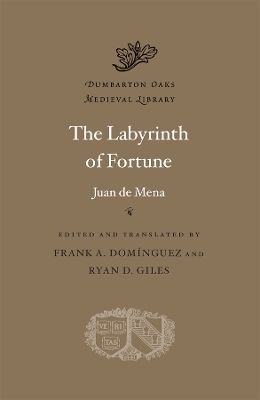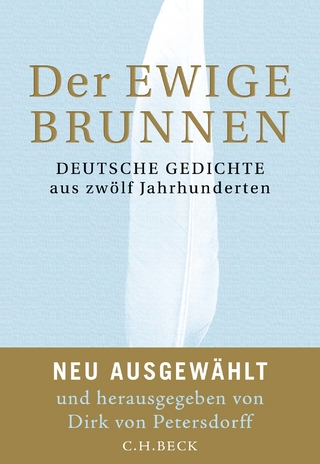
The Labyrinth of Fortune
Seiten
2025
Harvard University Press (Verlag)
978-0-674-29091-4 (ISBN)
Harvard University Press (Verlag)
978-0-674-29091-4 (ISBN)
- Noch nicht erschienen (ca. Mai 2025)
- Versandkostenfrei innerhalb Deutschlands
- Auch auf Rechnung
- Verfügbarkeit in der Filiale vor Ort prüfen
- Artikel merken
The Dantesque political allegory The Labyrinth of Fortune, composed in 1444 by Juan de Mena, reflects on Juan II of Castile’s contentious kingship and frames the Reconquest of Moorish territories as a sacred task. This is the first English translation of a Spanish masterpiece that influenced Miguel Cervantes and Luis de Góngora.
A classic, Dantesque political epic from medieval Spain that inspired Cervantes and Góngora, in its first English translation.
Why do the injustices of the past still afflict the present? With this question, Juan de Mena is transported to heaven by a vision in the Dantesque The Labyrinth of Fortune. Composed in 1444 by Mena, a royal chronicler and Latin secretary in the court of Juan II of Castile, El Laberinto de Fortuna became the most important political allegory of medieval Spain. Allegorizing the past, present, and unknowable future through the figure of Providence, the poem reflects on the contentious kingship of Juan II and frames the Reconquest of Moorish territories—the foundational mythos of the emerging nation—as a virtuous, sacred task that would restore justice and the moral order because it fulfills a destiny ordained by God. This is the first English translation of a masterpiece that enriched the Spanish language with a density of learned allusions and a new Latinate humanistic style that deeply influenced subsequent writers such as Miguel Cervantes and Luis de Góngora.
A classic, Dantesque political epic from medieval Spain that inspired Cervantes and Góngora, in its first English translation.
Why do the injustices of the past still afflict the present? With this question, Juan de Mena is transported to heaven by a vision in the Dantesque The Labyrinth of Fortune. Composed in 1444 by Mena, a royal chronicler and Latin secretary in the court of Juan II of Castile, El Laberinto de Fortuna became the most important political allegory of medieval Spain. Allegorizing the past, present, and unknowable future through the figure of Providence, the poem reflects on the contentious kingship of Juan II and frames the Reconquest of Moorish territories—the foundational mythos of the emerging nation—as a virtuous, sacred task that would restore justice and the moral order because it fulfills a destiny ordained by God. This is the first English translation of a masterpiece that enriched the Spanish language with a density of learned allusions and a new Latinate humanistic style that deeply influenced subsequent writers such as Miguel Cervantes and Luis de Góngora.
Frank A. Domínguez is Professor Emeritus of Spanish at the University of North Carolina at Chapel Hill. Ryan D. Giles is Professor of Spanish at Indiana University, Bloomington.
| Erscheint lt. Verlag | 6.5.2025 |
|---|---|
| Reihe/Serie | Dumbarton Oaks Medieval Library |
| Übersetzer | Frank A. Domínguez, Ryan D. Giles |
| Verlagsort | Cambridge, Mass |
| Sprache | englisch |
| Maße | 133 x 203 mm |
| Themenwelt | Literatur ► Lyrik / Dramatik ► Lyrik / Gedichte |
| Geisteswissenschaften ► Geschichte ► Regional- / Ländergeschichte | |
| Geisteswissenschaften ► Philosophie | |
| Geisteswissenschaften ► Sprach- / Literaturwissenschaft ► Anglistik / Amerikanistik | |
| Geisteswissenschaften ► Sprach- / Literaturwissenschaft ► Literaturwissenschaft | |
| ISBN-10 | 0-674-29091-7 / 0674290917 |
| ISBN-13 | 978-0-674-29091-4 / 9780674290914 |
| Zustand | Neuware |
| Informationen gemäß Produktsicherheitsverordnung (GPSR) | |
| Haben Sie eine Frage zum Produkt? |
Mehr entdecken
aus dem Bereich
aus dem Bereich
Deutsche Gedichte aus zwölf Jahrhunderten
Buch | Hardcover (2023)
C.H.Beck (Verlag)
28,00 €
Eine Liebeserklärung an die Gebrauchslyrik
Buch | Hardcover (2024)
Piper (Verlag)
16,00 €


